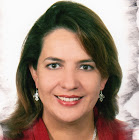Knowing the Nine Dimensions of Culture to Succeed in Project Management
ADVISORY ARTICLE
By Angelica Larios, MBA, PMP
Mexico City, Mexico
Introduction
In a world that always changes—one that has become globalized, interdependent of each nation economically, technically, socially, politically, and culturally—the need for leaders capable of facing challenges is growing every-day. We need leaders and project managers who are capable of understanding cultural and ideological differences, are respectful of different habits than their original environments, and are able to succeed in project goals. “In addition to fighting their own prejudice, leaders face the challenge of dealing with the prejudice of followers” (Northouse, 2013). Leaders need to be even more aware of the differences that can come from dealing with people from all around the globe. Project managers who are leading global projects need to be conscious of respecting their teams, customers, and stakeholders, with high esteem for their differences. In this article, we review the nine dimensions of culture, giving suggestions on how to benefit from these dimensions when we manage projects and teams with cultural differences.
What is the concept of global?
After several changes in our world following World War II—including processes, standardization, industrial development, expansion of our frontiers, and technological advances—the world has become closer than ever before. As Carr (2004) stated, “Most of us will recognize diversity in our work.” The global environment could either mean an extended project where resources are located practically everywhere, or a workplace that has contact with global resources. In this context, global leadership is defined as “the exercise of influence involving completely understanding important differences between people that affect the success of such influence” (Maranga & Sampayo, 2015). Nowadays, more and more projects are developing broadly, and there are a lot of cases where leaders are physically located in long distances away from where the resources and customers are located. “Thus, it is generally understood that global leaders are required to work with people of other cultures as coworkers” (Maranga & Sampayo, 2015). A global leader or project manager should be aware of differences in others’ cultures, motivating beliefs, and fundamental behavior systems which could affect the outcome of their management style. In doing so, project managers could have better chances of success by identifying and learning about differences in culture among the participants of the project.
When discussing project management practices in the global environment, we have to include culture differences, as the conceptualization of what a leader means differs from culture to culture.
In 1991, a research program was initiated by Robert House with the intention of reviewing cultural differences and leadership. Using this study, we can take a better approach in how to deal with preferences according to peoples’ origin. They defined nine cultural dimensions:
More…
To read entire article, click here
Editor’s note: This article was first published on projectmanagement.com; it is included here with the Author’s permission.
How to cite this article: Larios, A. (2020). Cultural Differences: Knowing the Nine Dimensions of Culture to Succeed in Project Management, PM World Journal, Vol. IX, Issue IV, April. Available online at https://pmworldlibrary.net/wp-content/uploads/2020/03/pmwj92-Apr2020-Larios-cultural-difference-advisory.pdf
About the Author

Angelica Larios
Mexico City, Mexico
![]()
Angelica Larios, MBA, PMP, is a project manager with more than 20 years of experience in implementing software projects related to business intelligence, planning and budgeting, and financial consolidation solutions based on software applications to support the business decision process. She is the owner of ALACONTEC, an I.T. consulting company founded in Latin America. She has held several professional positions in private and public organizations, such as the Health Ministry in Mexico as I.T. director, and as a business manager for several firms in Mexico.
She holds a master’s degree in business administration and a bachelor’s degree in computer science from the National University of Mexico (UNAM). In addition to her studies in project management and her Project Management Professional (PMP)® certification, which have helped her to consolidate her career and have a better understanding of what businesses and projects need nowadays. She is a doctoral student in strategic leadership at Regent University, VA. She is a volunteer since 2007, starting in the local Mexico chapter, being Past President and in several positions within PMI (CMAG, BVAC) and currently serves on the Ethics Member Advisory Group (EMAG) that supports the PMI Global Operations (2018–2020).
Angelica can be contacted at angelica.larios@gmail.com









